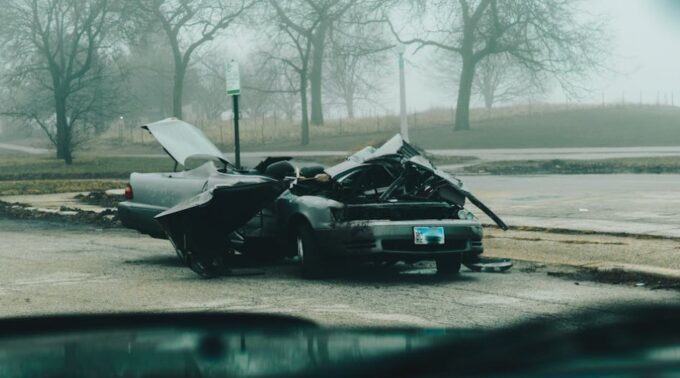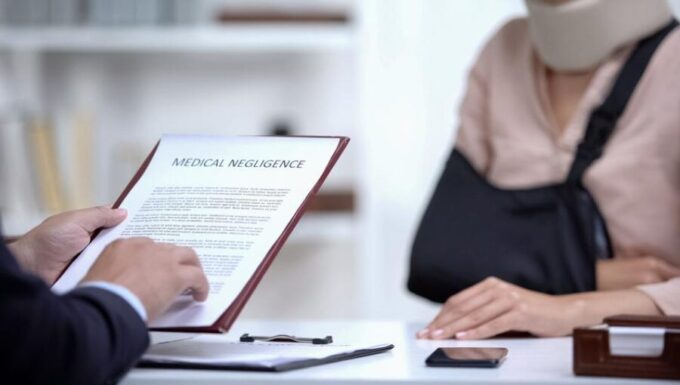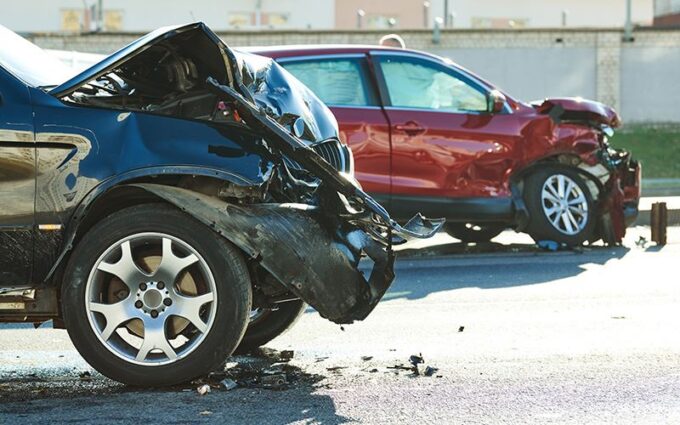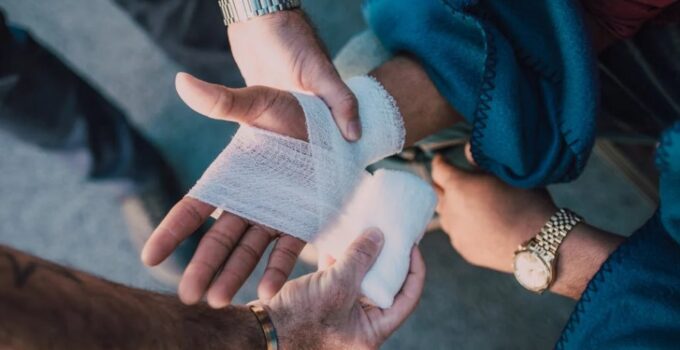So you’ve hurt yourself. And you’ve heard about personal injury claims. But how do you know if an injury is actually a legal matter or not? Here’s more on when injuries become legal, including some scenarios to help you decide if a personal injury claim might be the best route for you.
According to the Centers for Disease Control and Prevention (CDC), there are almost 40 million personal injury cases that need medical treatment in the United States every year. Unintentional injuries are also the leading cause of death in the country every year, accounting for 58,000 people.
When it comes to the legal side of injuries, it’s big business. Personal injury cases are worth more than $53 billion per year, and personal injury lawsuits take around 23 months to complete on average.
So there are plenty of statistics out there showing how common both personal injuries and personal injury legal cases are. But how do you know if your personal injury situation could be a legal matter? Here’s a closer look at five of the most common personal injury causes, and when they are and aren’t good for going legal.
1. Motor Vehicle Accidents

Source:pexels.com
Motor vehicle accidents are one of the most common reasons people go to lawyers like AtlantaAdvocate.com to make personal injury claims. If you suffered an injury in a car crash, it could become a legal matter if the accident was caused by another driver’s negligence. This could also mean reckless behavior, like speeding, distracted driving, or driving under the influence.
For example, if a driver runs a red light and hits your vehicle – and you get injured – you may have grounds for a legal claim.
Or if a driver fails to stop at a pedestrian crosswalk, and a person crossing the street gets injured, a personal injury claim is a possibility. This is because the driver could be held liable for not yielding the right of way.
Another scenario lawyers encounter pretty often is if a commercial truck driver violates hours-of-service regulations, then causes an accident due to fatigue. The injured person might have grounds for a personal injury claim against both the driver and the trucking company.
Something a lot of car owners don’t consider is if they have an accident caused by their vehicle they’ve maintained poorly. This could be brake failures, tire blowouts, or something else. This can actually lead to legal claims if it’s proven that the vehicle owner was negligent in maintaining their car.
On the other hand, if the accident happens because of bad weather conditions, or a mechanical failure where negligence can’t be proven, it might not be a suitable case for legal action.
In some accidents, figuring out who is at fault isn’t straightforward. If the evidence isn’t clear enough to prove negligence, like in cases where both parties contribute equally to the accident, pursuing a legal claim just might not be feasible.
Some people decide not to pursue a personal injury claim because not all injuries justify the time, effort, and cost of a personal injury lawsuit. If the injuries are minor and recoverable with minimal medical treatment, legal action might not be worth it.
2. Medical Malpractice

Source: forbes.com
Medical malpractice is when a healthcare professional fails to provide a level of care that meets defined standards. And then injury or harm to a person is caused. There are plenty of ways this can (and does happen), such as misdiagnosis, surgical errors, or incorrect medication prescriptions.
One straightforward scenario is if a surgeon leaves a surgical instrument inside a patient’s body. This is clearly negligence and may result in a personal injury or malpractice claim.
Another example of medical malpractice is if a doctor or other medical professional misdiagnoses a condition, which then leads to incorrect or delayed treatment. For instance, if a doctor incorrectly diagnoses a patient with a mild condition like a common cold when the actual issue is a more serious illness, such as pneumonia, this oversight can cause significant harm.
Medication errors are another frequent cause of malpractice claims. Taking the wrong dose or the wrong medication can have severe, even fatal, consequences. And if a medical practitioner is responsible for this, it’s likely a case like this will stand up in court.
However, if a patient experiences an adverse outcome of a procedure – but this was a known risk – it probably won’t be seen as personal injury or malpractice in a legal sense. Patients are often warned about potential risks before procedures, and sometimes you’ve even signed a document to say you understand this.
It’s also possible that a healthcare provider makes a minor error that doesn’t result in harm or injury to the patient, this typically won’t be considered malpractice.
Something else that happens from time to time is when a patient chooses to ignore professional medical advice, or fails to follow prescribed treatments, and subsequently suffers harm. This isn’t usually recognized as malpractice or personal injury caused by someone else, since the responsibility lies primarily with the patient.
3. Product Liability

Source:pinterest.com
Product liability is about injuries caused by defective or dangerous products. Normally, a legal claim is considered to be ‘viable’ when a product has a flaw in design, manufacturing, or labeling – which then results in injury.
We’re all familiar with kids’ toys labelled with their age suitability and hazards. But if a child’s toy contains small parts that were not labeled as a choking hazard, and then a child chokes, it may be subject to a product liability claim.
Another classic example of product liability involves defective vehicles. If a car manufacturer releases a vehicle with malfunctioning brakes that cause an accident, the people injured are pretty likely to have a valid claim against the manufacturer.
Also, if an electric appliance catches fire due to faulty wiring – and then a person or property is damaged – this could lead to a product liability lawsuit. The grounds in this scenario are about manufacturing flaws or inadequate safety warnings.
Looping back to medications – which have crossover with product liability – if a pharmaceutical company doesn’t warn consumers about severe side effects of a medication, and these effects cause harm, it may justify legal action. This would fall under personal injury caused by product liability, because of insufficient labeling or failure to disclose known risks.
There are some instances where a legal case isn’t appropriate, however. Like if a consumer misuses a product in a way that clearly ignores manufacturer instructions – and then they get injured – legal action probably won’t go anywhere.
Another situation where a product liability case might not be viable is when a product is inherently dangerous, and this danger is obvious to a ‘reasonable’ person. This could be if a person gets burned by an open flame while using a candle, it’s unlikely to be considered for legal action. After all, these risks are typically expected by consumers.
Also, if a consumer alters a product significantly – and this leads to their injury – a legal claim isn’t likely to be successful.
There are also situations that happen after a product is past its expiration date. If the product causes harm after this date, the expiration is seen as a clear indication that the product shouldn’t be used anymore. So injuries resulting from using it may not be appropriate for a liability claim.
Personal injuries are really common, and sometimes they’re just bad luck, or ‘just life’. But sometimes they’re more than that. And if someone has done something wrong by you and you could get compensation, it’s worth finding out more. Finding out whether something has legal potential or not early on will help you decide what’s the best course of action for you.







